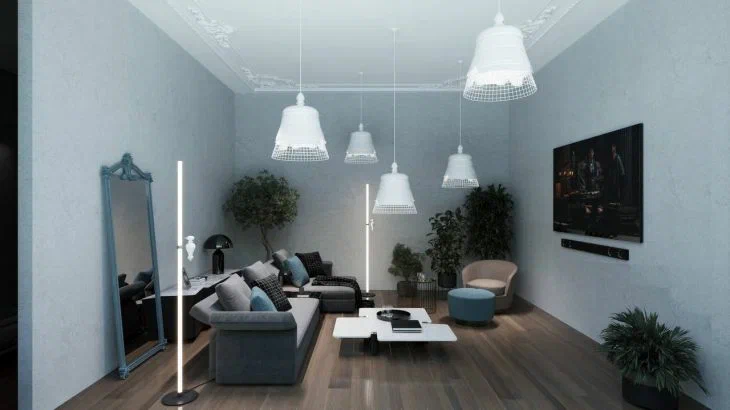In magazines and on TV we often see beautiful pictures of fashionable and modern interiors.
But, looking at the colorful images, do not forget that not all solutions are suitable for an “ordinary” apartment.
According to the expert of the online publication BelNovosti, designer Yulia Tychino, some techniques look especially ridiculous in Khrushchev-era buildings, so before implementing them in life, you should first familiarize yourself with the main mistakes that can cause irreparable damage to the interior of your apartment.

Floor-to-ceiling windows
The desire to install floor-to-ceiling windows has recently become a popular trend. However, this solution has its own nuances.
A beautiful view through panoramic windows is great, but what if there is a dull yard outside the window? In addition, such windows are not usually covered with curtains, and as a result, in the evening your room will be visible to all the neighbors.
Photo wallpaper
In recent years, photo wallpapers have been on the rise: everyone and everyone wanted to decorate the walls of their apartment with images of a night city or a picturesque waterfall.
At the same time, no one remembered that photo wallpaper looks luxurious in spacious rooms, but in a small bedroom such a design may look out of place.
Fashion trends
A huge risk is choosing a style and color based solely on popular trends.
Interior design trends can change faster than you can renovate, and an inappropriate color can have a negative impact on your psychological state.
When choosing a style, rely on your personal preferences, not on current trends.
Colored ceilings
Nowadays, many designers are trying to place an emphasis on the ceiling, but it is important to remember that bright and complex designs can visually reduce the space.
If you are not a design professional, it will be better if your home has classic white ceilings and well-chosen lighting.
Furniture
You shouldn't visit furniture stores without first arming yourself with a plan and taking preliminary measurements.
It is best to purchase furniture not at random, but gradually, carefully selecting and “adjusting” it to the existing interior elements.

